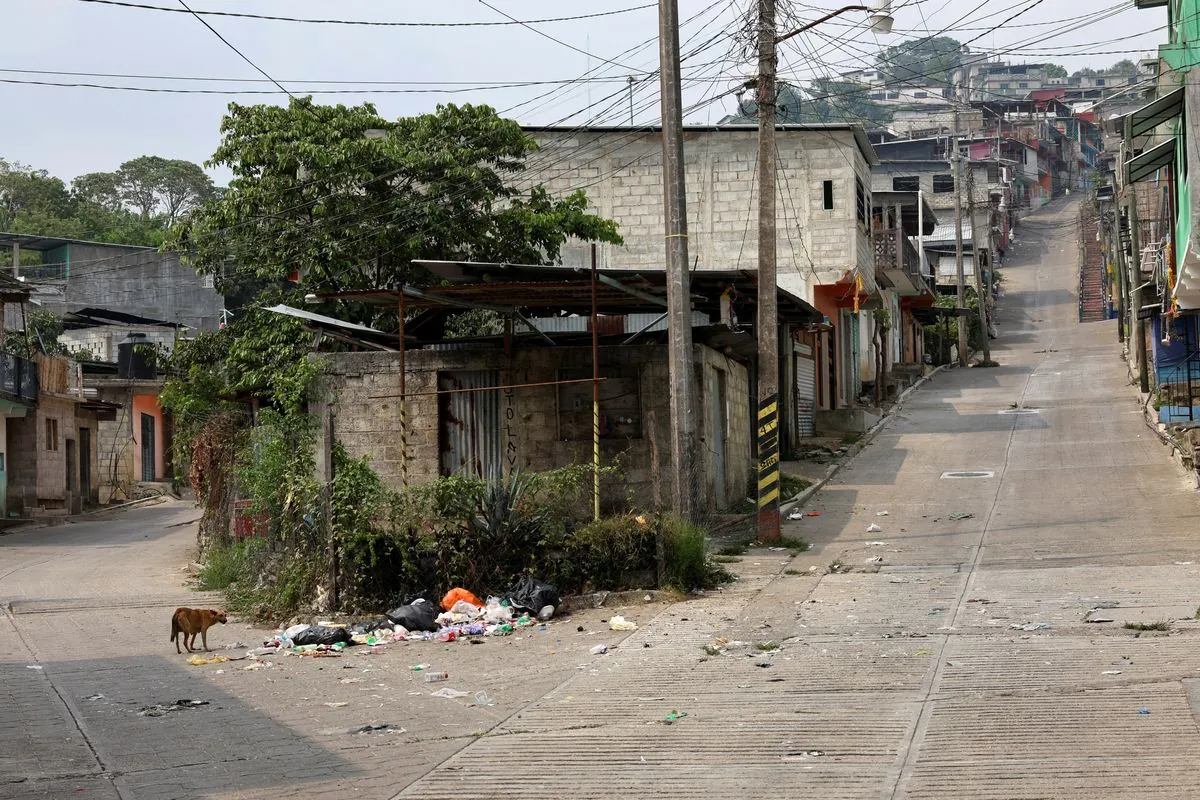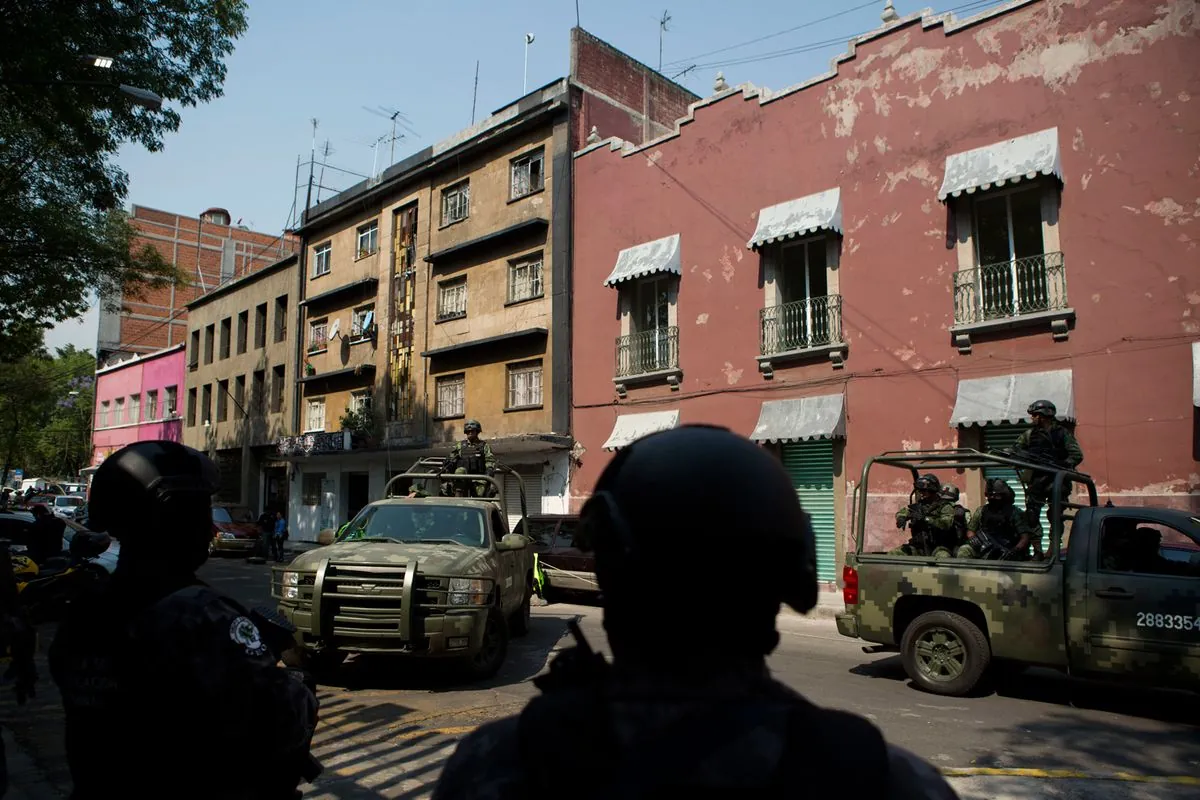Cartel Clashes Disrupt Life in Culiacan, Mexican Independence Celebrations Canceled
Culiacan, capital of Sinaloa, faces shutdown amid cartel violence fears. Schools close, festivities canceled as residents express concern over government's handling of Sinaloa Cartel power struggle.

In Culiacan, the capital of Sinaloa state, daily life has been severely disrupted due to fears of escalating violence between factions of the Sinaloa Cartel. This upheaval comes approximately 14 months after the arrests of key cartel figures in the United States, highlighting the ongoing challenges faced by Mexican authorities in maintaining order.
The city, home to about one million residents, has seen schools and businesses close their doors, while the upcoming Mexican Independence Day celebrations, traditionally held on September 15-16, have been canceled. These events, which commemorate the beginning of Mexico's struggle for independence in 1810, typically feature the iconic "Grito de Dolores" ceremony.
Despite assurances from Governor Rubén Rocha and former President Andrés Manuel López Obrador, both representing the Morena party, that security forces are effectively managing the situation, local sentiment tells a different story. The deployment of special forces, aircraft, and armed helicopters has done little to alleviate the pervasive fear among Culiacan's residents.

Ismael Bojórquez, director of the Riodoce newspaper, which specializes in organized crime coverage, paints a grim picture of the city's current state:
"The government doesn't control anything, absolutely nothing. There is a lot of fear. The people are defenseless."
Bojórquez describes a semi-deserted capital where residents have taken their own precautions, including keeping children home from school.
The recent surge in violence is believed to be linked to the arrests of Joaquín Guzmán López, son of former cartel leader Joaquín "El Chapo" Guzmán, and Ismael "El Mayo" Zambada near El Paso, Texas, on July 25, 2023. This event has apparently triggered a power struggle within the Sinaloa Cartel, pitting the remaining "Chapitos" (sons of El Chapo) against Zambada's loyalists.
The Sinaloa Cartel, one of Mexico's oldest and most powerful drug trafficking organizations, has a long history of violence and influence that extends far beyond the country's borders. Known for its extensive tunnel networks used for smuggling and involvement in various legal and illegal businesses, the cartel's activities have had wide-ranging impacts, from environmental damage to disrupting tourism in parts of Mexico.
Culiacan itself is no stranger to cartel-related violence, having witnessed a major operation to capture Ovidio Guzmán in 2019. The city's strategic location in northwestern Mexico, about 1,240 km from the capital, and Sinaloa state's agricultural importance, particularly in tomato production, make it a significant hub for both legitimate and illicit activities.
Critics argue that the government's approach to combating drug cartels, often characterized as "hugs, not bullets," has been ineffective in addressing the root causes of violence and instability. As the situation in Culiacan unfolds, it serves as a stark reminder of the ongoing challenges Mexico faces in its fight against organized crime and the profound impact these conflicts have on ordinary citizens' lives.


































